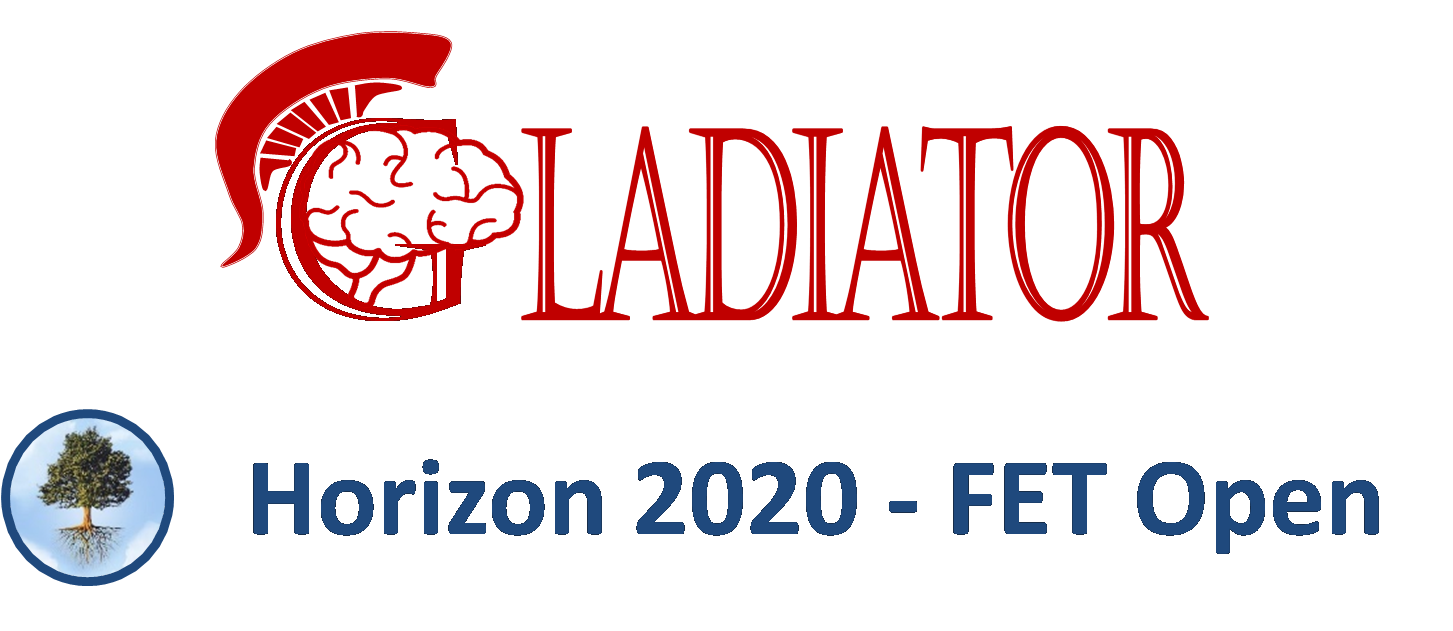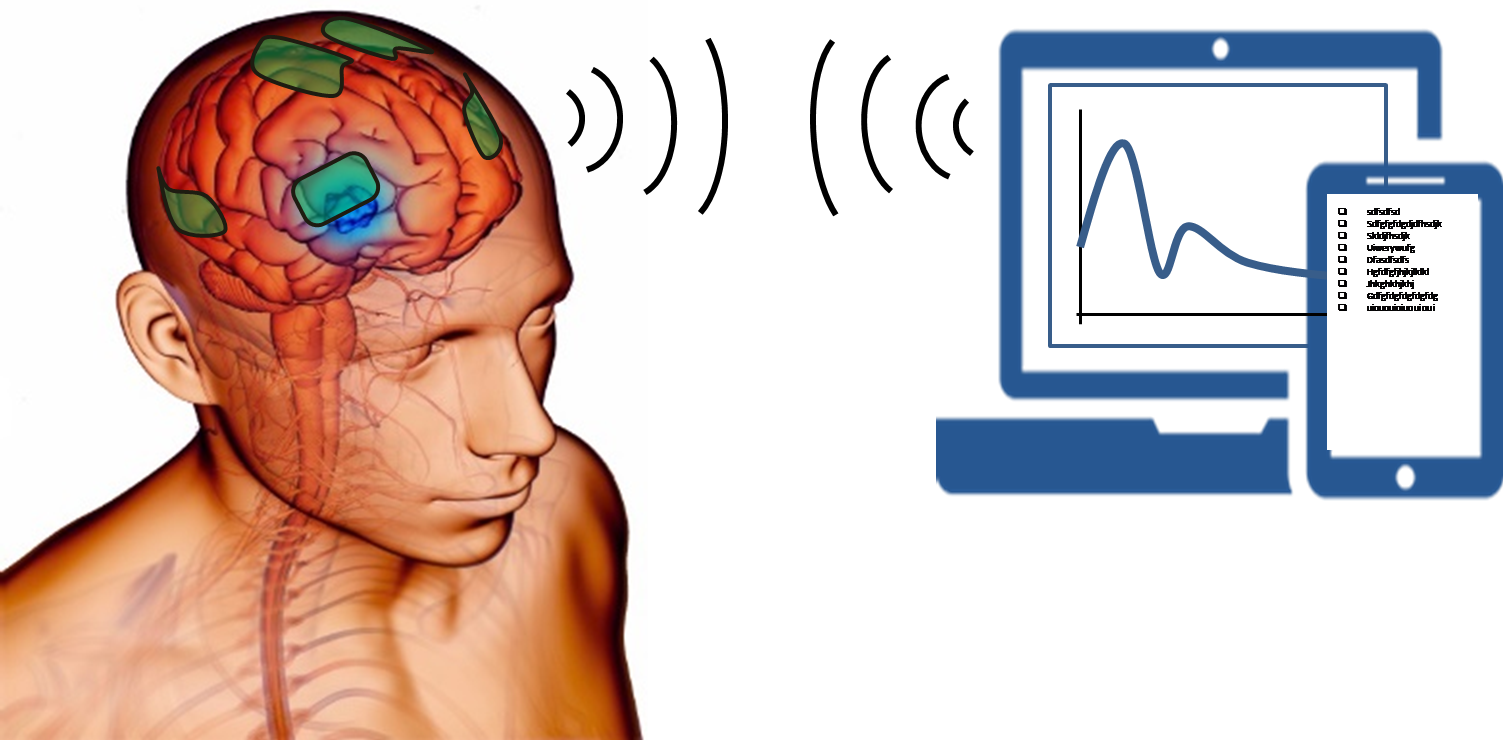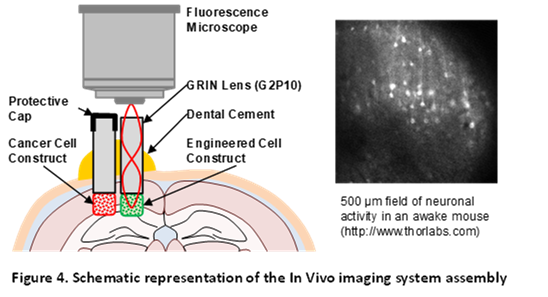| |
|
|
Next-generation theranostics of brain pathologies with autonomous externally controllable nanonetworks: a trans-disciplinary approach with bionanodevice interfaces (GLADIATOR) |
| |
 EPOS-Iasis is the scientific coordinator of a prestigious European research project funded from the “Future and Emerging Technologies (FET-Open): Novel Ideas for radically new technologies” program of Horizon 2020. EPOS-Iasis, led by Dr. Andreani Odysseos, is the Scientific Coordinator of the project. EPOS-Iasis will also develop novel biological systems for efficacy testing and lead the commercialization efforts of the results. The project’s full title is: “Next-generation theranostics of brain pathologies with autonomous externally controllable nanonetworks: a trans-disciplinary approach with bionanodevice interfaces”. This project aims to develop a vanguard and comprehensive theranostic (therapeutic + diagnostic) solution for brain malignancies by bridging life sciences, bio–nanotechnology, engineering and information communication technologies (ICT). Currently, highly complex malignancies such as brain tumors, have a very grim prognosis, despite recent progress in their treatment and management. GLADIATOR envisions to establish a radical long-term vision leading to a drastic change in cancer monitoring and therapy. It will usher a paradigm shift in Oncology, with the introduction of “bio-nano-machine diagnostics”, and stimulate the implementation of the “Internet of Nano-bio-things”, leading to technological and clinical developments with high socioeconomic impact. EPOS-Iasis is the scientific coordinator of a prestigious European research project funded from the “Future and Emerging Technologies (FET-Open): Novel Ideas for radically new technologies” program of Horizon 2020. EPOS-Iasis, led by Dr. Andreani Odysseos, is the Scientific Coordinator of the project. EPOS-Iasis will also develop novel biological systems for efficacy testing and lead the commercialization efforts of the results. The project’s full title is: “Next-generation theranostics of brain pathologies with autonomous externally controllable nanonetworks: a trans-disciplinary approach with bionanodevice interfaces”. This project aims to develop a vanguard and comprehensive theranostic (therapeutic + diagnostic) solution for brain malignancies by bridging life sciences, bio–nanotechnology, engineering and information communication technologies (ICT). Currently, highly complex malignancies such as brain tumors, have a very grim prognosis, despite recent progress in their treatment and management. GLADIATOR envisions to establish a radical long-term vision leading to a drastic change in cancer monitoring and therapy. It will usher a paradigm shift in Oncology, with the introduction of “bio-nano-machine diagnostics”, and stimulate the implementation of the “Internet of Nano-bio-things”, leading to technological and clinical developments with high socioeconomic impact.
Specifically, GLADIATOR will provide, for the first time, a working prototype of a complete, autonomous and clinically applicable, nanonetwork-based, theranostic system based on the conceptual framework of Externally Controllable Molecular Communications (ECMC). Molecular Communications is the emerging discipline of exploring the transmission of encoded messages via molecular channels in solutions, cells or entire living organisms. Such systems can even form networks of bio-nano-machines which, when externally controlled, can be interrogated to extract information on the status of the cancer but also manipulated to affect its progration.

It is expected that the project’s results will substantially improve patient prognosis and prolong survival by minimizing recurrences and reducing drug toxicity. Improved health, extended life expectancy and productivity, reduced sick-leaves, shorter hospitalizations, reduced return visits, less personnel and caregiver involvement will also have a positive effect on the already overstrained Health Care Systems. Moreover, the innovative biological and nanotechnology-based innovations, development methods, computational and analytical tools advanced through GLADIATOR, are expected to have significant economic impact since they can enter into significant market segments as indicated by global market projections and underlying drivers. In addition to the University of Cyprus and EPOS-Iasis R&D Ltd, other partners participating in this project are the Fraunhofer IBMT from Germany, the University of Oulou from Finland, the Norwegian University of Science and Technology, the Waterford Institute of Technology from Ireland, and Osaka University from Japan.
For more information regarding the project please visit to the Project Page ...
|
|
A Fully Autologous Cell-based System for Delivery of Molecular Therapeutics to Brain Malignancies (BRAIN-THROUGH) |
| |
BRAIN-THROUGH introduces a sound, credible and feasible innovative system for fully autologous cell-based Delivery of Molecular Therapeutics to Brain Malignancies, epitomized by Malignant Gliomas (MG). Glioblastoma Multiforme (GBM) is the most frequent (3-5/100,000) and morbid one with median survival 15months. The grim prognosis relates to resistance to available therapies and treatment failure, greatly attributed to the (i) significant tumor heterogeneity and biologic complexity, (ii) difficulty in delivery of therapeutics across the Blood-Brain- Barrier (BBB) and the brain tumor microenvironment (TME), including the extracellular matrix (ECM) and (iii) lack of precise tumor imaging, presenting unique challenges for comprehensive management of the disease. The individualized medicine market is exponentially increasing reaching $ 90 B. in 2023, while there is a projected tremendous increase of the GBM market niche alone from 670 M$ in 2014 to 3.4.B $ in 2024. Thus, there is a compelling need and unique challenges for a carefully-targeted and personalized drug regime for each patient.

The proposed Research for Enterprises project, is aiming to:
- Primarily, make notable advances in the management of a detrimental and economically unbearable disease by exploiting converging driver mutation pathways throughout tumorigenesis, within a dynamic interplay between the TME and transmigrating, therapeutically engineered cell populations such as the Neural Stem Cells (NSCs). Such an advancement can become available from biomimetic models of NSCs induced from fibroblasts (iNSCs) with effective reprogramming while therapeutic attributes can be endowed with effective gene transfer of multipotent micro-RNA sequences, attacking multiple driver (i.e. oncogenic) pathways. The appreciation that successful delivery of multipotent micro-RNA sequences within iNSCs would favourably modify drug delivery in both localised and distantly invading tumour niches. This is achieved due to the tumour-homing potential of iNSCs and assures faster clinical translation. The therapeutic iNSC-based systems will be designed and engineered around cellular, biological and physiological processes involved in the brain ECM within three-dimensional organoids grown on natural polymers, offering a service that overcomes insufficient robustness and cost ineffectiveness of the currently available small-scale production processes of cell-based therapies, leading to a next generation brain tumour management system and transforming the brain tumour market.
- Secondly, contribute effectively to the ongoing financial crisis by assuring enhancement of the competitiveness of the Cypriot enterprises with the development and swift commercial exploitation of a new pipelines in both highly expanding markets and emerging market niches. This will be achieved with the intensification of the participation of Cyprus enterprises in research and development activities, such as the fully autologous platform for cell construct (organoid) and disease preclinical models supported by minimally invasive and image processing tools, assuring faster translation. This is expected to further advance the contribution of the private sector to Research, Technological Development and Innovation.
- Ultimately, respond to the alarmingly high fragmentation of efforts and resources with thoughtfully designed exploitation of competencies and complementarities within disciplines and across sectors facing the major challenges and addressing the requirements of S3Cy Priority Area ‘Health” with the “Development of Safe and Efficacious Drugs”.
BRAIN-THROUGH integrates the essential constituent basic knowledge and unique infrastructures, prototype compounds and validating systems, available at each team by introducing Key Enabling Technologies, monitoring, quantifying and delineating the response to cell-based therapies with high effectiveness and safety for better prognosis, totally fulfilling the scope of this call. This will enable the entrepreneurial partner to respond effectively to the requirements of a unified European and globalized market within an interdisciplinary and coherent framework of Open Innovation. BRAIN-THROUGH will face the unemployment challenge with the creation of new positions and will further equip the next generation of creative researchers with the tools to face current and future challenges and convert knowledge and ideas to products and services towards developing therapies for an intractable and economically burdening disease, thus bringing substantial economic and social benefits, in full accordance with the program’s objectives. |
For more information contact:
Dr. Andreani Odysseos (andreani[at]epos-iasis.com)
|